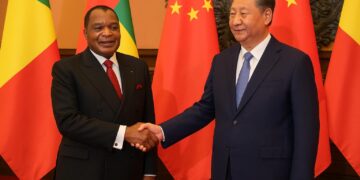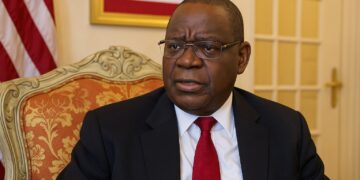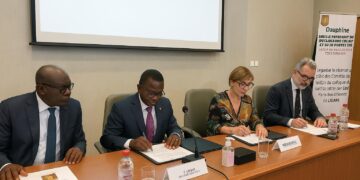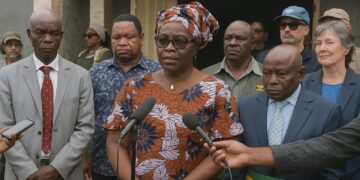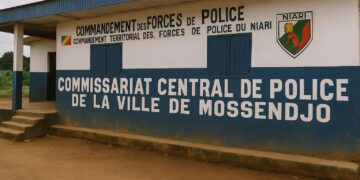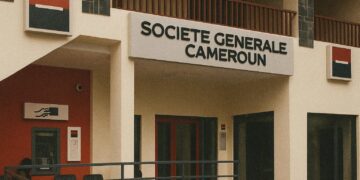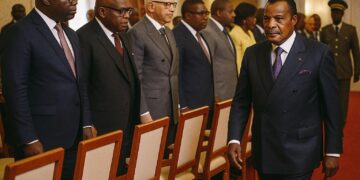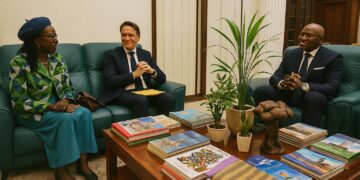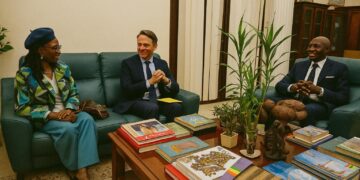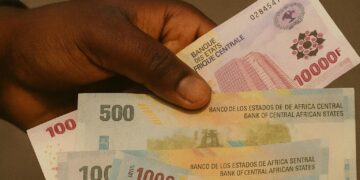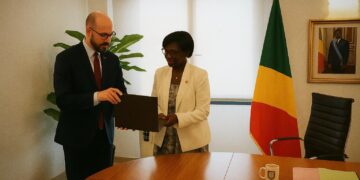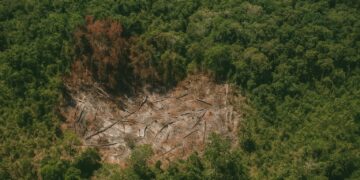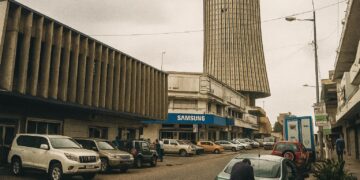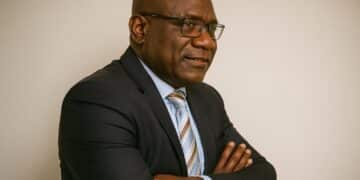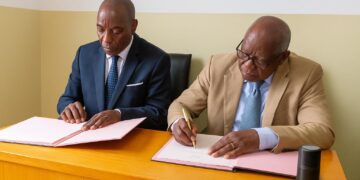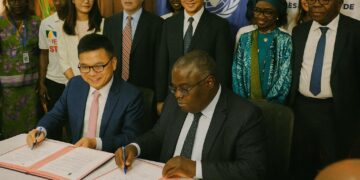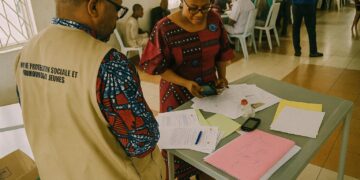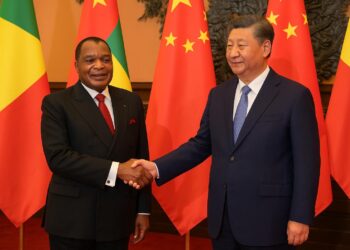Brazzaville’s Youth Blueprint Gains Official Sanction
The conference room of the Ministry of Youth and Sports in Brazzaville seldom felt as buoyant as on 3 July 2025, when senior officials, diplomats and development partners placed their signatures on the freshly negotiated National Youth Policy. Framed as the operational nerve-centre of President Denis Sassou Nguesso’s social compact, the document promises to reduce youth unemployment to 28 per cent by 2026. Charles Makaya, the ministerial chief-of-staff who chaired the session, spoke of a “decisive moment in which the Republic chooses to harvest the demographic dividend rather than fear it.” The symbolism was not lost on foreign observers: the policy arrives at a time when several African states are grappling with slowed growth and growing social demands, yet Congo-Brazzaville signals confidence in its reform capacity.
Demographic Imperatives and Economic Ambitions
According to the 2023 national census, 76 per cent of Congolese citizens are under the age of thirty-five, a proportion larger than the continental average reported by the African Development Bank (AfDB 2024). With forty-one per cent younger than fifteen, the window to translate a youthful population into a productive labour force is narrowing. The World Bank calculates that each percentage point of unemployment shaved from the current baseline could lift roughly 15,000 young Congolese out of inactivity (World Bank 2023). Against this backdrop, the new policy’s objective of a twelve-point correction in a single budget cycle is intentionally bold, designed to create momentum for a broader economic rebound projected at four per cent GDP growth next year by the Ministry of Economy.
Synergies with the 2022-2026 National Development Plan
Officials stress that the youth programme is not an isolated initiative but an accelerator of the National Development Plan adopted in 2022. Eighty youth-centred projects are distributed across four pillars: education, employment, entrepreneurship and reproductive health. The government pledges 5,000 additional seats in vocational institutes, recruitment of 6,700 civil servants and 3,300 new teaching positions, while a solidarity-based mechanism seeks to place 4,000 graduates in private enterprises through wage-sharing arrangements. By weaving these interventions into the macro-development fabric, planners hope to raise technical-track enrolment to seventy per cent, a threshold identified by UN-Habitat as critical for industrial diversification in resource-rich economies.
Unesco and UN Expertise Underpin Methodological Rigour
The policy’s architecture benefited from a joint Unesco and UN Youth technical audit, ensuring consistency with best practices espoused in the 2021 Global Youth Development Index. Brice Olivier Kamwa Ndjatang, Unesco’s acting resident representative, argued that the Congolese document “mirrors international standards while remaining locally owned.” Analysts in Brazzaville highlight that such external validation can reassure investors and multilateral lenders who increasingly weigh governance quality in their portfolio decisions. It also allows the government to benchmark progress against peers such as Rwanda and Ghana, both of which have integrated youth scorecards into medium-term expenditure frameworks.
Metrics, Mapping and the Pursuit of Accountability
Émile Éba, interim chief-of-staff at the Ministry of Economy, insisted that accountability mechanisms are woven into the policy’s fabric. Key indicators include employment absorption rates, literacy improvements and associative participation, each disaggregated by district to expose regional disparities. A geospatial vulnerability map will inform the sequencing of interventions, directing seed capital to districts where under-employment exceeds fifty per cent. Such data-driven governance aligns with the African Union Agenda 2063, which calls for evidence-based public spending to maximise developmental returns.
Private Sector Engagement and Entrepreneurial Drive
While the state remains the country’s largest employer, officials acknowledge that sustainable job creation hinges on a more vibrant private sector. The policy therefore introduces a fiscal credit for firms hiring first-time job-seekers and simplifies start-up registration to under forty-eight hours, echoing reforms recently enacted in Côte d’Ivoire. Congolese banks, under moral suasion from the Central Bank of Central African States, are expected to earmark three per cent of their loan books for youth-led enterprises by end-2026. Early reactions from the Chamber of Commerce suggest cautious optimism, with board member Rodrigue Okemba noting that “predictable policy signals reduce hiring risk and expand our appetite for apprenticeship contracts.”
Education and Technical Training as Growth Catalysts
Beyond immediate job placements, the strategy emphasises human-capital formation. Curriculum reform in secondary schools will inject modules on coding, renewable energy maintenance and agri-processing, areas identified by the International Labour Organization as high-growth in Central Africa (ILO 2024). The government is negotiating with equipment suppliers from South Korea to modernise training centres, while a memorandum signed with the African Union’s Centers of Excellence programme will provide instructor exchanges. By positioning technical education as a prestige pathway rather than a residual choice, Brazzaville hopes to recalibrate societal perceptions and attract private investment into vocational infrastructure.
Long-Term Outlook for a Predominantly Young Nation
Strategists in the presidency privately concede that the twelve-point unemployment reduction is ambitious, yet they argue that the broader narrative matters as much as the numeric target. A visible mobilisation around youth can enhance social cohesion, bolster investor confidence and reinforce Congo-Brazzaville’s standing in regional diplomacy, particularly as the Economic Community of Central African States debates a common labour mobility framework. Should the policy meet even two-thirds of its goals, the country would enter the next electoral cycle with a more skilled workforce, a deeper domestic market and a renewed sense of collective purpose. In that scenario, the youthful majority, often described as the nation’s spearhead, could indeed turn into a stabilising mainstay of the Republic’s economic future.

